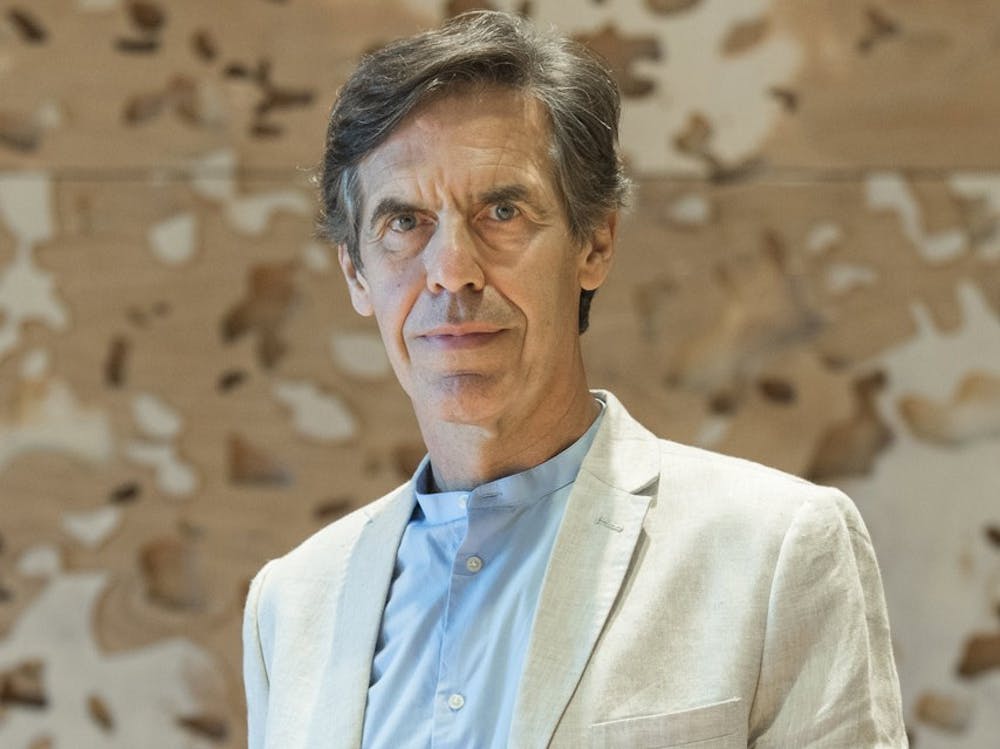Classical music has a problem. Its audience is mostly white, educated, wealthy and old. While debates rage over whether the art is dying or thriving, one thing is certain: It’s perceived to have an elite, exclusive culture.
Laurent Bayle, the Director of Philharmonie de Paris, wants to change this. He spoke at the Rubenstein Arts Center on Feb. 18, delivering a talk entitled “The Future of Music: Seeking New Modes of Making Music and New Models of Outreach,” in which he outlined his efforts to modernize and expand classical music.
One initiative spearheaded by Bayle — called DEMOS (Dispotif Educatif Musical à Vacation Sociale) — seeks to create children’s orchestras in disadvantaged areas of France. Modeled after “El Sistema” in Venezuela (which has faced criticism), DEMOS connects social workers with children who have purportedly never been exposed to classical music. These children are given instruments and the opportunity to train within an orchestra. The program lasts three years, and children meet twice a week in groups of 15, led by two professional musicians and a social worker.
Bayle claims the program has been a success. In his talk, he pointed to high satisfaction among the children (more than 90%), as well as improved performance at school, continued interest in music after the program and “improved behavior” as observed by the social workers.
Bayle ended his talk with his hope to bring greater cultural diversity to a traditionally homogenous art form.
“DEMOS is quite simply trying to address issues that lay at the heart of our social challenges,” Bayle said. “For example, the fight against barriers in cultural practices between audiences, social classes, generations and territories.”
Bayle has been a significant leader in the preservation of classical music in France. He oversaw the construction of two new concert halls closer to the underprivileged suburbs of Paris, and he has worked with regional leaders to integrate local cultures and non-Western music into the concert repertoires.
But that doesn’t mean Bayle’s initiatives are always well-received. He acknowledged that some criticize the French government for using taxpayer money on what appears to be an entertainment hub for the elite. Bayle believes, however, that this perception is misguided, and that his DEMOS program is a response to that criticism.
“It’s not classical music itself that creates barriers,” Bayle said. “But the customs created by society … Our bet is: If children from any cultural practice are put in contact with classical music, they will identify with it.”
During the open Q&A session following the talk, some in attendance expressed concerns about the DEMOS program. While Bayle framed his initiative around “cultural diversity” and social equality, some audience members observed that DEMOS still centers a historically exclusive and deeply Eurocentric tradition. (At one point, Bayle mentioned that the children performed from the “great Western repertoire.”)
David Liu, a visiting scholar in the department of religious studies at Duke, asked Bayle why he chose to privilege the classical orchestral tradition in the mission of DEMOS.
“The question was trying to get at my anxiety with using classical music as a way of democratizing society and bridging class gaps,” Liu said in an interview following the talk. “At the same time, it inadvertently reinforces the privileged position classical music has had. [Classical music] is going through a deep decline, but the elite never needs to be in majority. The elite is, by definition, a minority.”
Another audience member suggested that a songwriting camp, with “guitars and synthesizers,” would achieve the same positive effects of DEMOS while speaking in the language of the children.
Bayle had counterpoints ready. He mentioned the Philharmonie’s “many, many, many other activities” outside of DEMOS that engage with popular music. At the same time, however, he emphasized the uniquely collective nature of the orchestra that makes it especially impactful. He also noted that the alternative to DEMOS is to make no effort at all to diversify the classical music realm.
So how can you diversify classical music without reinforcing the power dynamics that make it an elite art form in the first place? David Liu had an idea for the starting point.
“The most promising alternative — but the most difficult at the same time — is to begin by suspending one’s acceptance of these traditional, entrenched power bases in the current cultural landscape,” Liu said. “And then to imagine what other constellations of possibilities there might be.”
Laurent Bayle, however, can’t reimagine the cultural landscape on his own. That’s up to the larger public discourse. In the meantime, he’ll continue his efforts to modernize and diversify classical music to reach new fans and future musicians.
Get The Chronicle straight to your inbox
Signup for our weekly newsletter. Cancel at any time.

